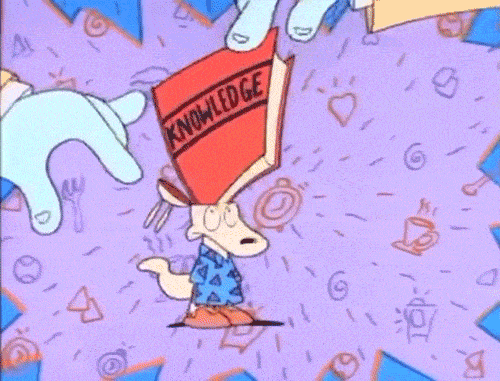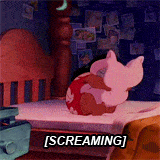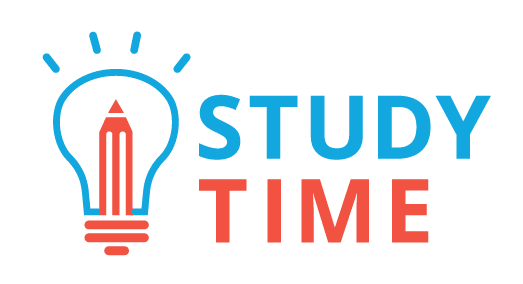Mock exams are everyone’s favourite time of year, and by everyone, I mean no one. It’s no one’s favourite time of year. But this year is especially difficult because, well, this year has been especially difficult.
With the COVID-19 disruption to the school year, everyday life, and the Foo Fighters World Tour, this year has probably made sitting mock exams the hardest since NCEA was born from sacrificing Harold the Giraffe into a volcano.
Not only that, but with the uncertainty about the state of the world in November (who am I kidding, next Tuesday) means that rumours are circulating that mocks may be it for this year. Fortunately, the Right (and) Honourable Jacinda Ardern and Dr. Ashley ‘The Eliminator’ (his real nickname, check his Wikipedia) Bloomfield have done an E8 job at ensuring that you can hopefully put mocks behind you, where they belong.
However, unlike the New Conservative Party, mocks actually have some value. If you’ve been around here long enough (or read the Anyone Can Learn Walkthrough Guide), you’ll know about the benefits of sitting practice exams in exam conditions. Just like driving a car is the best way to practice for your driving exam, sitting a calculus exam is the best way to practice for a calculus exam.
This means that mock exams are extremely useful for telling you about your current understanding of a topic, and what’s more, how effective your study strategy was leading up to the mock exam. Both of these things can easily (and probably should) be improved before the real thing, so a less-than-ideal mock grade is normal and nothing to worry about.
Instead of beating yourself up, you can use mocks as a tangible checkpoint for checking how well you are currently able to sit a gene expression exam, and implement the following tips and strategies to make sure that 2020 at least ends on a good note.
Here are 5 ways to bounce back from mocks.
Reframe it From Intelligence to Strategy
One of the biggest mistakes we make is framing our marks as indicative of our intelligence. It’s easy to understand why: we’re constantly led to believe that exams test your knowledge, and the logical follow-on that most people make is that exams, therefore, test how “smart” you are.
There’s actually a bit more correlation and less causation here than you may think. Exam grades don’t reflect intelligence, they reflect strategy.
A mock exam for genetic variation and change doesn’t test how smart you are, because it doesn’t test how easily and well you were able to understand genetic variation and change – it tests how your brain processed, stored, and retrieved your genetic variation and change knowledge and applied it to that specific exam under time pressure.

That may sound a bit waffly, but what it’s essentially saying is that exams aren’t really a good way of measuring how smart you are, or even how good you are at a specific subject. Instead, they measure how efficiently and effectively you were able to apply what you have learnt in that specific exam context, which is a specific set of unfamiliar questions under time pressure. Often, the “smartest” students have the best study strategies, because those are what strengthens knowledge.
So, if you got a disappointing mock grade, don’t beat yourself up about “being bad at maths”. Instead, assess what your strategy was for that maths exam. Were you regularly testing your immediate understanding of concepts, and then re-testing later on to see how well you can retrieve those concepts when they’re not fresh? Were you focusing on study methods that practice getting the information out of your head (retrieval practice) rather than in? Were you assessing and prioritising weaknesses in the topic? Were you practising in exam conditions? Did you look at marking schedules? Did you have a plan for the exam?
If you want to learn about how to most effectively study, check out our free Guide Anyone Can Learn!
Take Accountability and Set Goals
Following on from that, and bearing in mind that we’re not beating ourselves up, the next point is to take accountability and reflect on your approach to the mocks.
We won’t lie to you, it’s pretty hard to get pumped up for mocks. At least with “proper” exams, there’s a bit of a stress factor, your mates are all studying as well, and although you have a lot on your plate, you’ve got a few months of Tik Tok and tanning to look forward to after the broccoli that is exams.
It’s important to neither take disappointment to heart nor take no accountability. Part of reflecting on your strategy, work, and effort is taking ownership of your successes and your shortcomings.

A big tip for this is looking at this objectively, which means taking personal feelings out of it. Imagine that you’re a coach and you’re coaching yourself. You may have neglected calculus, you may have studied a bit too passively for biology and not put effort into retrieval practice, you may have started studying too late – note everything down, reflect on what you did and why it worked or didn’t work, and set a new plan.
Using your mocks, set goals. Research consistently shows that goal-setting provides both accountability and motivation, which are two absolute keys to succeeding in exams.
Goals should be focused on the end result, like “Getting an M in calculus” as well as the process in getting there, like “Practising calculus every weekend”.
Identify Strengths and Weaknesses in Content
Continuing on with our coach analogy, it’s a pretty great use of your time to take an objective and critical look at your exam paper and see which areas you were strong in and which you weren’t.
Even the greatest athletes in the world have a coach. That’s because we (the general “we”, not that we’re the greatest athletes in the world, no offence) can always improve, and it helps to have a strategy focused on your specific strengths and gaps in knowledge.
A big mistake all of us have probably made in our time is taking the path of least resistance with our studying. This means passive study methods, repeating what’s comfortable rather than what’s most effortful and effective, and focusing on what you’re good at.
If you’re sick at writing visual text essays, maybe you should put the Schindler’s List blu-ray down for a bit and focus on the physics exam you’d rather just pretend doesn’t exist, like we do with the New Conservative party.

Making like a burrowing mongoose in a particularly cold winter and going a little deeper, we can take this point and apply it to specific subject topics. One sick study strategy is a mind map, because not only does it require you to visually draw links between concepts and see the bigger picture, it also gives you a checklist of exactly what concepts are within a paper.
By giving a green light/orange light/red light to each concept based on how deeply you understand it (which remember, comes down to how well you’re able to retrieve the concepts and apply it to unfamiliar questions), you can focus on the concepts that will make the biggest difference to your overall grade.
This even applies to literary subjects as well. A fun challenge can be working on introductions, or conclusions as if you’re perfecting a particular aspect of your basketball game. Studying for English doesn’t mean writing whole essays or reading Spark Notes over and over again – it can be practising writing E8 introductions as efficiently as possible. If you want to know how to do that, check our English Walkthrough Guides.
Save the Exam
I think we’ve all been guilty of throwing away all of our exam papers. For some of us, our teachers even take our mocks, because they like to read them before bed. It gives them comfort.

If you can, either take the papers home or take photos of the questions. Once you’ve re-adjusted and worked on your new study strategy for the rest of the year, which includes noting down strengths and weaknesses, setting goals, and practising retrieval and effortful study methods, do the same exam again. Or, if you remember the answers too well, save a past paper for a couple of months out from the exam to sit in exam conditions, like a mock 2.0. That way, the mocks are kind of like a mock mock. If you want, you can go a step further and schedule another past paper “exam”, and make mocks like a mock mock mock. If you really want to, you can. . .
Take a Break and Re-set
It’s been a year, so it’s alright if you’re feeling burnt out by August. The most fun most of us have had so far has been – well, we’re actually not sure, but that kind of speaks for itself. We’d all like to go back to a simpler time, like January, when Australia was just on fire.
As such, it’s ok if studying and exams feel like something you just can’t be bothered with right now. That’s fair. After sitting mocks, you deserve some time to recharge after reflecting and re-strategizing. By starting earlier, we can make the preparation for exams easier on ourselves, but we can’t forget about consistent habits – and it’s hard to be consistent if we’re burnt out.
So, set yourself some goals and create a strategy for the rest of the year that will help you achieve them, but make sure to balance hard work with well-deserved rest. Don’t worry, mocks don’t mean much; it’s what we do after them that counts.
Good luck with the rest of 2020.

0 Comments